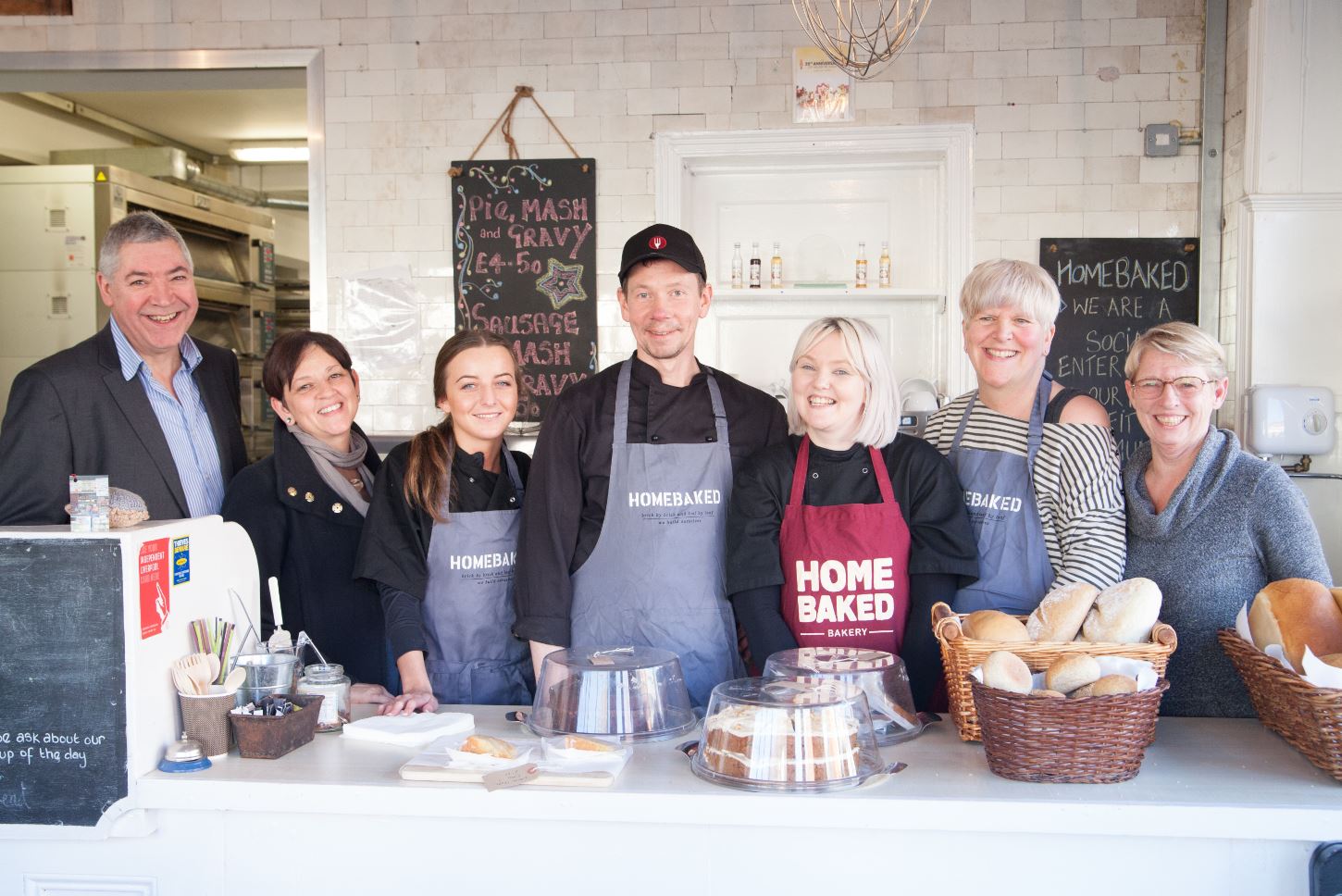A quiet revolution is underway nationwide, resulting in the creation of a very different business style.
Communities are no longer prepared to let big businesses with no attachment to the local area decide their future, especially those with a local food heritage and economy.
Norwich has been the centre of the mustard industry for nearly 200 years. Originating as a Victorian family firm with a strong social ethos providing housing, education and health support, Colman’s played a major role in the city. It was taken over by multinational food giant Unilever in 1995, which eventually decided the Norwich site was uneconomical.
“We were determined to maintain the mustard legacy. I met with the leader of Norwich Council to discuss the situation,” says Robert Ashton, a founder of Norfolk Mustard, a new company set up in 2018 to continue Norwich’s mustard legacy.
“We felt there must be a different answer – why not have a truly Norwich-based company that could reawaken the mustard heritage and production, provide jobs locally and be responsible to the community?”

Now, product sales at Norwich Mustard are steadily growing, and the company is negotiating with local farmers to continue supplies of mustard seed. Long-term premises are being sought within the city and Norwich Mustard has adopted a co-operative community business status.
In Liverpool, BBC Good Food Award nominees and community-owned bakery Homebaked aims to regenerate the local area, ‘brick by brick and loaf by loaf’.
Set up as a co-operative, the bakery is owned by around 200 members of the local community, with a governing body elected by members and run by a management team.
Treasurer and member, Sally-Anne Watkiss, explains: “There has been a bakery on the site for 100 years. It closed down because the owners were getting near retirement. Lots of properties, including the bakery, were purchased for development.”
Local people got together and set up a community land trust covering the bakery and much of the street, explains Watkiss.

Since opening in 2013, the bakery has expanded from bread into pies, which it sells on match days to capitalise on its proximity to the nearby Liverpool FC stadium. “We are now making 3,000 pies a week and have expanded into a food production unit,” adds Watkiss.
Research undertaken by the Plunkett Foundation and published by local business charity, Power to Change, indicates a steady growth in the number of community-owned businesses.
Today there are around 7,000 community-owned businesses employing over 33,000 people, with thousands more working as unpaid volunteers.
The Plunkett Foundation estimates that there are around 200 community-owned food companies, plus 400 shops and cafes, based on data recorded when companies apply for grants or support, hence why the figures are an estimate.
Community businesses have a 95 per cent success rate compared to standard businesses, according to the Foundation, which said this is primarily because all profits generated by a community business are automatically reinvested.
Sophie Macken, head of market development at Power to Change, believes community businesses are growing in popularity because they exist to serve their local communities. “This could be through education and training, giving food to food banks, breathing life back into disused buildings and instilling pride in the area,” she says.
“There is a very strong feel-good factor as a consumer, and what’s more, the food-related community businesses tend to have very strong standards for their produce. People want to know where their food comes from, how it was produced and they also want to feel good about their purchasing habits.”

But these social responsibilities can make it more difficult to run a community-owned business, as cost isn’t the only factor. “It’s harder to run a community business than a normal one because it has to be run according to social objectives,” says Watkiss, of Homebaked. “Our costs are about 10 per cent higher because we buy locally and sell our bread at supermarket prices, but it balances out because our profits return to the business.”
Community businesses are appearing in all types of business sectors. There are community-owned vineyards, shops, libraries, transport services and farms.
Devon-based Chagfarm works closely with sister company, Chagfood, to run a group of allied farm businesses – organic dairy, pork and poultry, honey, vegetable boxes and salads. More offshoots are appearing including a training course for Community Supported Agriculture, a movement connecting customers to food origins and how it’s produced.
Chagfarm’s farm manager, Sylvan Friend, says: “We are supporting about 75 families at the moment, and deliver over 100 veg boxes a week. It has taken a while to build up our membership but there is a good local demand from the community.”
And while community-owned business aren’t a new concept, Macken believes uncertainty around Brexit could mean they become even more popular.
“With Brexit potentially looming, nobody is sure what the future will bring with the country’s food imports, but we expect to see a growing interest in food that is not just locally produced but is making a positive impact at the same time,” she says.
Co-operative versus community-owned
Community-owned businesses (COBs) are traditional for-profit business models that are open to everyone.
Co-operatives are operated primarily to benefit members (most grocery co-ops also serve non-members, but may charge more to non-members) and may not focus on generating profits.









Will Riverford be stocking the Norfolk mustard?
Hi dc. Norwich Mustard along with the other businesses mentioned highlight how new community owned businesses and cooperatives are having a positive impact. Riverford aren’t stocking this mustard but the good news is you can buy it directly here https://norwichmustard.coop/